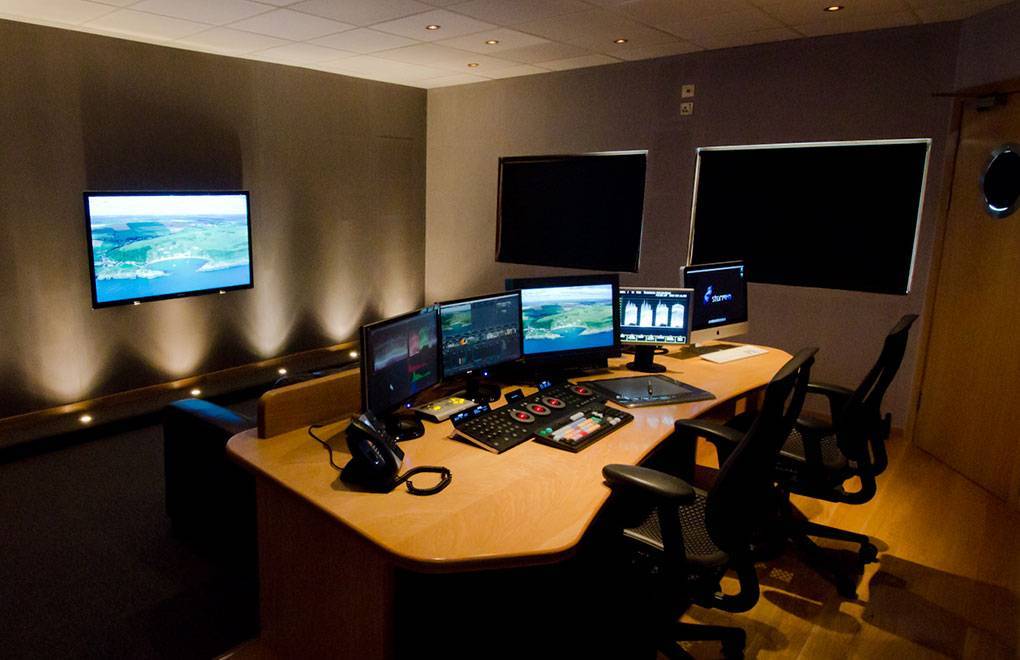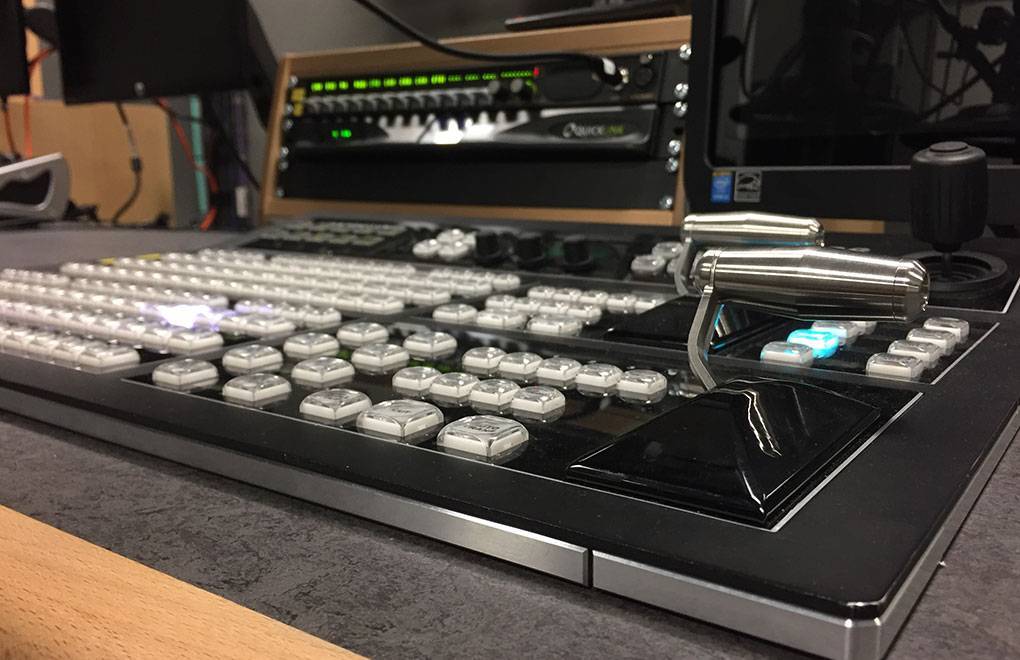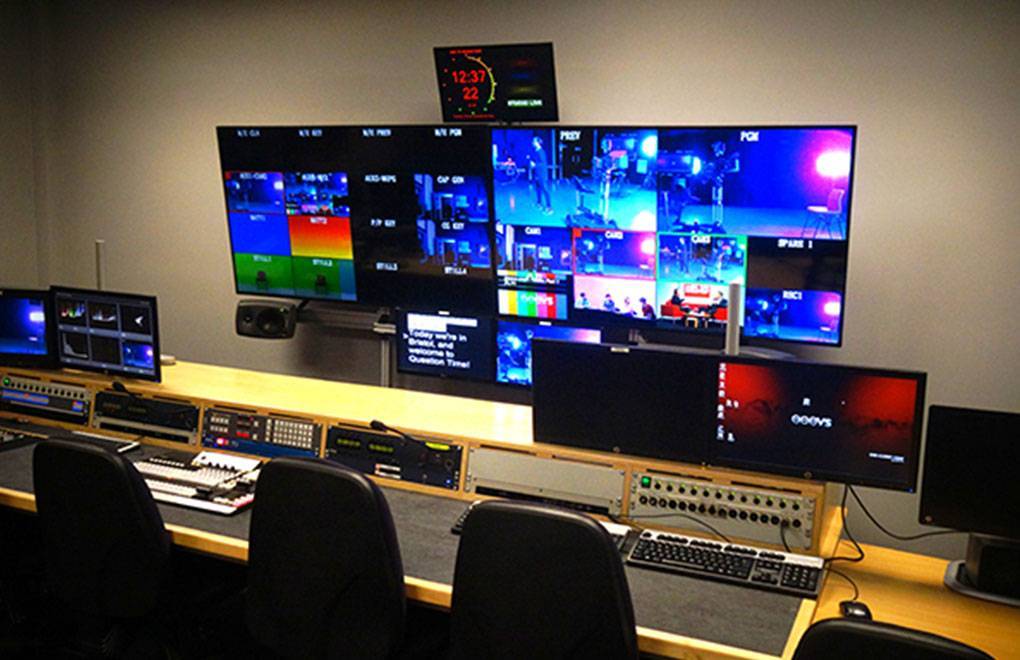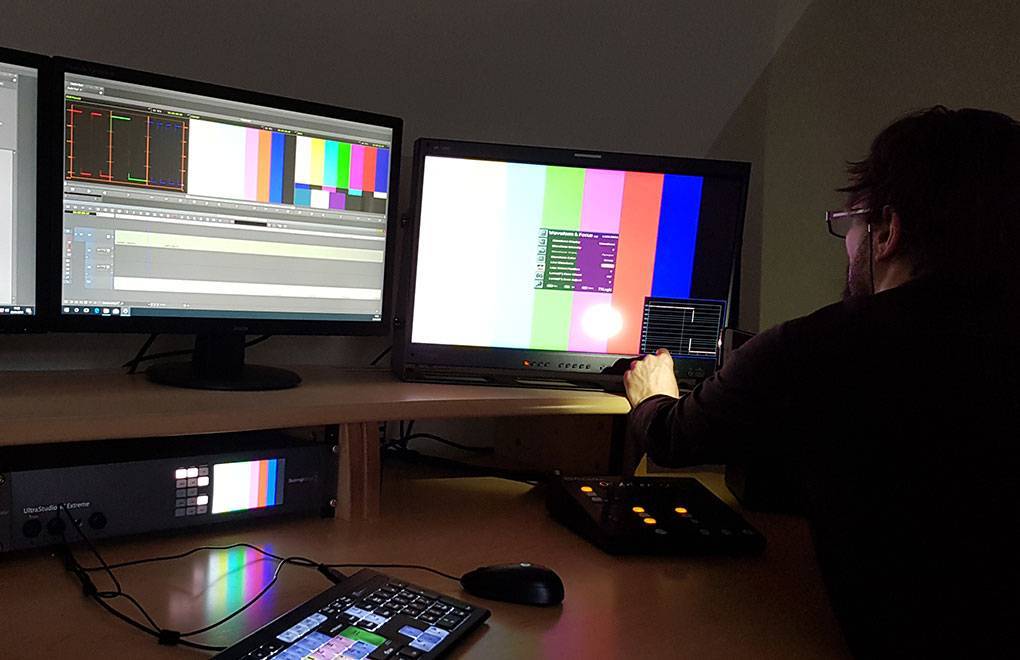
Liverpool Screen School
More than 600 students enrol in Liverpool Screen School’s popular Journalism, Media Production and Film Studies programs each year. Noted for their “theory and hands-on practice” approach to education, the school enjoys an internationally recognised reputation for their work as well as the strong links they have forged with companies across the creative and digital sector including the BBC, ITV, and Lime Pictures.
With much of the teaching based on real-world media production techniques and an ever-evolving technical based curriculum, the school sought to revamp its media infrastructure, ensuring students keep pace with the fast-changing technology landscape. “Our student experience spans a broad range of technical expertise,” states Darcy O’Bree, Technical Resource Manager, Liverpool Screen School. “The diversity of our courses requires us to teach a range of different technical methods for realizing the student’s creative vision. The students do conventional film production. They do television production, including live and thematic style TV. They’re even getting into things like projection mapping, event visuals, colour management, and content quality control (QC).”
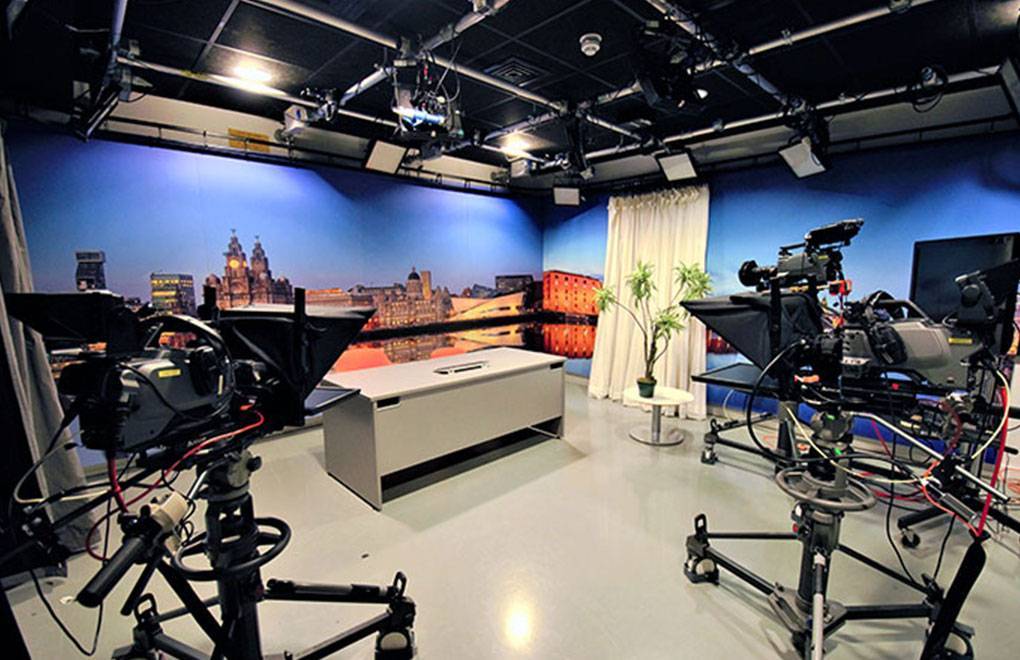
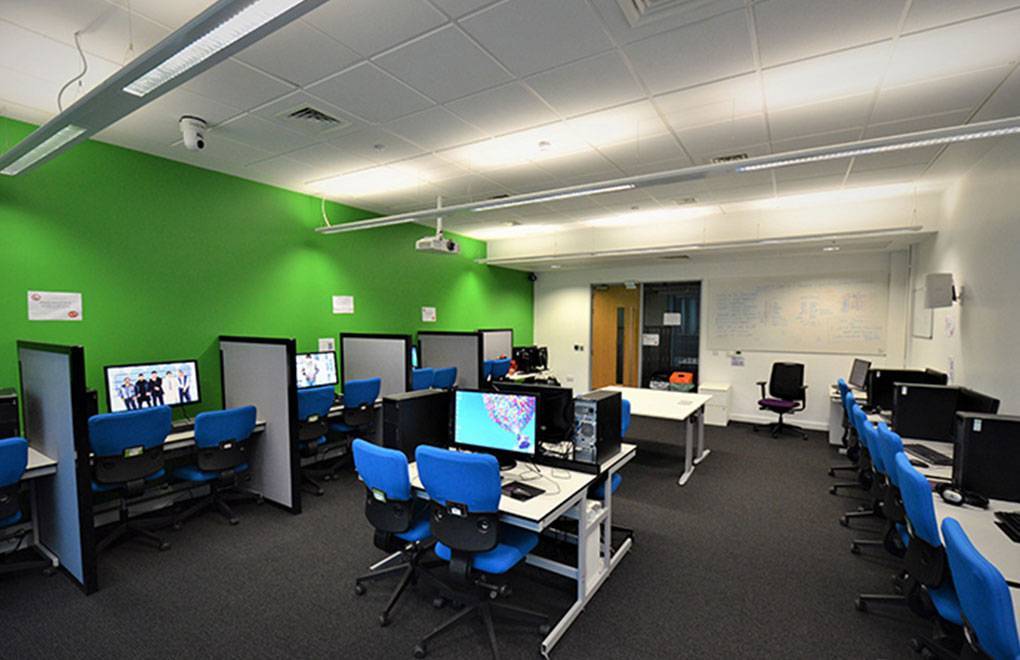
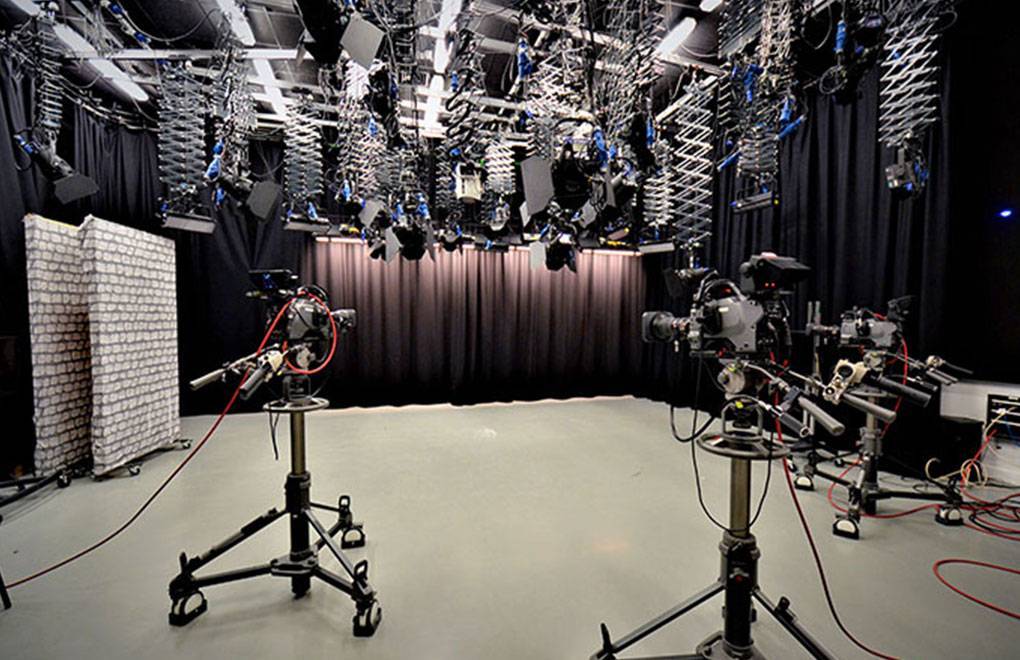
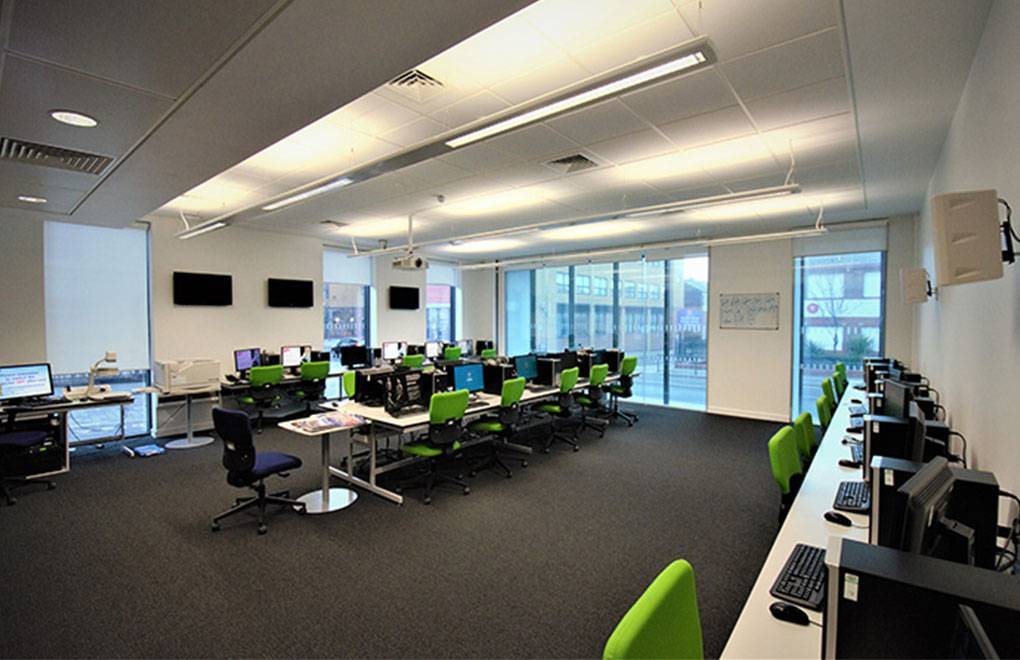
Upgrading its Infrastructure to Take on the Future
Putting out an industry-wide call for information, the Liverpool Screen School reviewed submissions for a range of media storage and management solutions on the market. “With increasing student numbers, we were about to hit a wall with capacity in the existing system. Also, the way the system was originally set up five years ago, it wasn’t integrated with the university’s main network, which limited access,” explains O’Bree. “Students outside the network could not access media projects. With the mobility of media applications, we needed to open this up and find a way to give students and teachers remote access to projects with the ability to collaborate with one another in an organized way while eliminating risk of losing track of project assets or worse.”
The school’s technical team looked at how they could leverage industry storage solutions and media management tools to expand the workflow options. Darcy adds, “We evaluated the market to help us determine whether we should upgrade our existing Editshare system, or start from scratch with a new system. After receiving responses from a number of vendors, we decided to install a new EditShare XStream EFS 450 system for our primary storage, and repurpose our existing system as nearline and archive storage.”
“The inclusion of EditShare Flow for asset management gives our students some powerful tools for managing their media offsite and effectively gives them 24/7 access to their work. We’ve also added EditShare’s new QScan Pro solution to our range of colour and quality management tools. This is a direct response to increased industry demand for graduate experience in this area of post-production workflow. With the retention of our existing EditShare Geevs system to manage studio ingest and playout, we have maintained a seamless, single-vendor ecosystem which can be continuously rescaled to meet our changing requirements.”
With a track record of success and proven technology evolution, there was confidence that EditShare could meet the new millennial creative demands as well as the demands of the real world broadcast, commercial and filmmaking facilities.
EditShare Supports the Full Creative Scope
Ensuring students had full accessibility to the creative tools was the number one priority for the new upgrade. O’Bree explains, “With this upgrade, we want to increase accessibility to our post-production tools in general. The students use a variety of different editing applications. We’ve got Avid Media Composer, Apple’s Final Cut Pro, and the full Adobe Creative Cloud suite, with different courses using different combinations of applications. And this year, we are introducing students to advanced colour grading via Blackmagic’s DaVinci Resolve. This is why we opted for EditShare.” Darcy goes on, “Any student or staff doing any form of post-production can store their projects on EditShare. And not only on campus, but off campus as well. These buildings are not open around the clock, but students are working all sorts of hours and complete access was paramount.”
The new EditShare installation seamlessly integrates the school’s creative applications including the main post production solutions – Adobe Creative Suite CC, Apple Final Cut Pro, Avid Media Composer, and Blackmagic Davinci Resolve – with supporting important round-trip workflows, advanced project sharing and easy previewing via proxy files.
Late Night Edits
With students working at all hours of the night, the fully integrated EditShare Flow and AirFlow media asset management applications provide critical automated transcoding, asset tracking and remote access for after-hours creative work. O’Bree adds, “In addition to the access, we wanted to also see what we could give them in terms of capabilities off-campus. That’s where the AirFlow module within Flow comes into play. With browser-based editing, they can sit at home and, at the very least, put together a draft timeline of their edits and just get all the main blocks in place, and then bring that back into the editor of their choice when they come back on campus to finalize. This was, broadly speaking, what we needed to achieve. It was secure access, availability and the flexibility to be able to use the tools anywhere at any time.”
EditShare Flow and AirFlow expand Liverpool Screen School’s workflow to include logging media and tracking metadata as well as providing basic remote ingest, logging and editing through the Airflow web-based browser. And thanks to the university’s 10Gb/s backbone, the network can easily handle the masses working late at night.
Quality Control – It’s A Real World Need
With the expansion of platforms to distribute content too and the number of content producers and myriad of formats in which you can produce and deliver content in, file compliance is an important element in production and production handoff in the real world and no one knows this better than Liverpool Screen School’s O’Bree, “I actually caught up with Lime Pictures Post-Production Technology Manager, Alistair McMath, at BVE in London earlier this year. Together with another media manager from the BBC, we had quite a long discussion about quality control management and how there’s a shortage of skills for that in the industry and that students and graduates are not mastering these skills in the classroom. We also have a lot of students that submit their productions into various film festivals, and even they are demanding fairly rigid quality standards these days, so incorporating quality control management through QScan into the curriculum has become quite important.”
Liverpool Screen School is expanding their curriculum to include automated QC techniques using EditShare’s QScan AQC system. The intuitive QScan UI is visually designed for the creative. Simple-to-use features and easy-to-read report results make it easily adaptable to classroom environments. Students can go frame by frame and understand the values of parameters and tested results, easily spotting problems with their content. O’Bree elaborates of the simplicity of the applications “I saw a demo of QScan at BVE, and just thought that’s a really simple tool that students can run their work through and it throws out a very easy-to-read report that shows them exactly where their deficiencies are and what they need to fix, as a starting point for colour and quality.”

Providing Liverpool Screen School student interns a real-world experience is Lime Pictures, the British production house for blockbusters such as Hollyoaks, The Only Way is Essex, Geordie Shore, and Free Rein. Lime Pictures’ Alistair McMath, who oversees the infrastructure for Lime Pictures post-production and is connected with the student interns, elaborates on the evolution of technology-based learning and the importance of understanding quality assurance workflows coming out of university. “When I was at university, it was all theory-based learning. It wasn’t massively technical and I very quickly realised when I started working in the industry that the technology that I had learned was obsolete.
Today it is different. Institutions like Liverpool Screen School give students access to the same editing and storage systems you find in world-class facilities like Lime Pictures. And it’s great to see that they are further expanding the exposure to include QC. With the various delivery standards, it’s a real asset to have this knowledge, even if it’s minimal.” Alistair explains, “In recent years, QC has moved from being a task performed just before broadcast to a task that can be done at almost any point across production and post-production. Whilst it’s not the most glamorous side of TV, it is incredibly important for students coming out of school to have a framework of what QC is. They need to understand that there is QC for photosensitive epilepsy as well as all of the technical standards. They need to know what levels are legal and be familiar with QC terminologies such as audio true peaking and audio loudness. I realize that this can be technically challenging to master, but the fact that the Liverpool Screen students will have been exposed to QC systems and processes gives them a step up when entering the real world.”
For more on EditShare QScan QC solutions visit qscan.editshare.com.
About Altered Images
Altered Images is a leading expert in workflow system design and a major technology reseller for the broadcast, television production, education and corporate communications industry. Its highly-skilled team understands visual communication technology, offering everything from a single product to a complete turnkey solution. From consultancy and system design, through to sales, installation and support, Altered Images offers a fully-specified service for production and broadcast professionals. For further information, please get in touch.
About Liverpool Screen School
A school with outstanding programmes and innovative research, Liverpool Screen School delivers excellent programmes within media, journalism, the performing arts and writing. Not only do they provide a supportive environment, but also cement quality theoretical teaching with relevant, practical experience; experience that ensures students can succeed professionally in their chosen fields. For further information, please visit this link.





